

In November 2022, my life changed in ways I could never have anticipated. What began as a relentless headache quickly spiralled into something far more serious; a brain abscess that almost ended my life. That was over two years ago, and in the time since, this experience has pushed me to question everything I thought I knew about myself, about resilience, and about the way mental health is understood; not just by individuals but by organisations and businesses alike.
This post is the final chapter of the MHFABlog series (but not the end of Mental Health blog posts), and while it marks the end of this journey, it also serves as a reflection of how far I have come. My partner affectionately refers to me as Mark V2.0 (born December 2022), and she is not wrong.
The person I am today has been shaped by the challenges I faced and the lessons I have learned. Recovery was not just about healing physically; it was about rebuilding my perspective, my priorities, and my purpose.
One of the most striking realisations I have had is how little we, as a society, truly understand mental health. Many individuals and organisations claim to value it, but their actions often tell a different story. This has driven me to become an advocate and a Mental Health First Aider, not just for awareness, but for meaningful change. Mental health cannot remain a buzzword or a box to tick; it must be embedded in how we live, work, and support one another.
As I take you through this final chapter, I want to share the personal journey that has brought me here. It is a story about resilience, transformation, and the power of the people around us. It is also a call to action for businesses and communities to move beyond assumptions and embrace a deeper understanding of what mental health truly means.
This post is not just about my challenges or triumphs. It is about the lessons we can all take forward; about questioning what we think we know and being open to learning, changing, and growing. Over two years ago, my life took an unexpected turn, and while it was not a path I chose, it has led me to a mission that I am deeply passionate about. I hope this post inspires you to see mental health in a new light; not as an abstract idea, but as something that touches every aspect of our lives.
“The show must go on.” – Traditional Proverb
“Change brings opportunity.” – Nido Qubein
“Embrace each challenge in your life as an opportunity for self-transformation.” – Bernie S. Siegel
It started as just another day. In November 2022, I began experiencing a persistent headache (while working away from home) on the left side of my head. It didn’t seem extraordinary, just one of those things you try to push through, chalking it up to a mild flu-like illness. As the days went by, the headache did not leave. It grew. By the time I realised something was seriously wrong, it had already started to take over my life.
The diagnosis? A brain abscess. Even now, over two years later, the words feel surreal. This was not something I had ever prepared for. Who does? One day, you are managing the day-to-day demands of life, and the next, you are being told you are in a life-threatening situation. It is not the kind of thing that fits into a tidy narrative or a neatly organised plan. Life as I knew it simply stopped.

What stands out most to me now is not the diagnosis itself but the loss of time. From late November to the 19th December, my memories are a blank canvas. It was as though my life had been paused, yet for everyone around me, it was a whirlwind of fear and uncertainty. I was there, but I was not present. My body fought battles I do not even remember, and my fiancé carried a weight I could not and still do not even comprehend.
On 14th December 2022, I underwent my first emergency surgery to remove the abscess. The risks were high, the outcome uncertain. My fiancé later told me that during those weeks, she did not just fear for my life, she braced herself for what would come if I survived.
Would I be the same person?
Would I recover fully?
These were the questions she could not allow herself to dwell on, even as she stayed by my side, hour after hour, day after day. Her presence was more than comforting; it was lifesaving. Without her, I know I would not be here to write this.
I have to thank the amazing Drs and Nurses at Leeds General Infirmary for putting up with me for 7 weeks…. To them… Thank you
The moments before, between, and after (not one) the two operations, are a blank canvas to me; A period of my life I have no memories on. My awareness only truly began to return on 19th December, when I woke up mentally. Even then, I did not fully grasp what had happened to me, why everything hurt, why I had stitches (14) running in a line above my left ear. It was only in the weeks and months that followed, and the conversations with my fiancé, that I began to piece together the enormity of it all. My brain; the core of who I am; had been invaded, and in many ways, it had to be rebooted. My affectionate nickname, Mark V2.0, came from this process of rebuilding myself; physically, mentally, and emotionally.


Reflecting on this time, one thought stands out above all others:
What if I had been alone?
If I lived alone, there is no doubt in my mind that I would not have survived. This realisation is not just sobering; it is a call to action. Support, care, and connection are not luxuries; they are the lifelines that save us. Without my loved ones, my story would have ended in December 2022.
This experience has fundamentally changed how I view the world. I used to think of mental health as something personal, something individual, but now I see how deeply it is tied to the people around us. The day my world changed was not just about a medical emergency; it was about learning the value of the support systems that carried me through it. It was the day I understood that we are never truly alone if we let others in.
There is something about facing the edge of life that shifts everything you thought you knew. On 14th December 2022, I was on that edge. The brain abscess that had slowly taken over my body was not just a medical emergency; it was a battle with time, with odds, and with the unknown. Survival was not guaranteed, and neither was who I would be if I made it through.
The surgery was the turning point, but for me, it was also a void. I remember nothing of those hours when the medical team worked to save me. I was not present to witness the fear in my fiancés eyes as she waited for news. I was not aware of the calls made to family or the updates shared with friends. For everyone around me, it was a nightmare they lived through. For me, it was a blank space; no awareness, no control, just silence.
What came after was no easier. Survival did not feel like victory; it felt like uncertainty. Waking up on 19th December and piecing together what had happened was not a moment or period of relief. It was the beginning of an uphill climb I had not prepared for. My body had been through trauma, but my mind; the very thing that defined me; felt fragile, unfamiliar. I was alive, but I did not feel like myself. It was as if my survival had come with a cost I had not agreed to pay.
In those early days, fear was my constant companion. Fear of what had happened. Fear of what might happen next. Would my brain recover fully? Would I ever be able to think, speak, and function the way I once had? Every question seemed to linger in the air, unanswered, unrelenting. Yet, through it all, there was a quiet determination that began to grow within me. I was alive and that meant I had a chance; a chance to rebuild, to adapt, to figure out what Mark V2.0 could become.


Survival is never a solo act. I was not just carried by my own willpower; I was carried by the people around me. My fiancé (she knows who she is) was my anchor, my lifeline. She was there for every moment I could not be. When I was too weak to speak out and ask for help for myself, she fought on my behalf. When I could not see the path forward, she walked it with me, step by step. Without her, survival would have been a word, not a reality.
The thin line between life and death is not just about the physical battle. It is about the emotional and mental toll it takes on everyone involved. It is about the moments of silence that weigh heavier than words, the waiting, the not knowing. It is about the strength it takes to keep hoping, even when the odds seem impossible, and it is about the overwhelming gratitude that comes when you realise you made it through; not because of luck, but because of the people who refused to let you fall.
Survival is not neat or tidy. It is messy, raw, and at times, overwhelming, but it is also a gift; one that has taught me to never take another day for granted. The thin line I walked between life and death has given me a deeper appreciation for the people who stood by me, for the fragility of life, and for the resilience we all carry within us, even when we do not know it is there.
Recovery was not just about healing; it was about redefining who I was. After the surgery, my fiancé began calling me Mark V2.0, a term that initially made me laugh but quickly became something I embraced. It captured the essence of what these past two + years have been; a reboot, a rebuilding, a complete re-evaluation of the way I live, think, and approach life. I was the same person, yet fundamentally different.
Before this, I was confident in what I knew. My career, my routines, my outlook; they were built on years of experience and a sense of control over my own mind. That control was shattered when I faced the reality of my recovery. Simple things I once took for granted, like finding the right word in a conversation or processing a thought quickly, felt like monumental tasks. I had to learn patience; not just with the process, but with myself. I had to accept that progress was not always linear and that some days would feel like steps forward while others felt like setbacks.
At the same time, Mark V2.0 was not just about the limitations I faced; it was about the opportunities I discovered. The experience of going through something so profound changed the way I approached everything. I started to see challenges not as obstacles, but as questions waiting for answers. I began to ask, “Why not? What if?“ I found myself looking at situations from angles I never considered before, realising that the answers are not always immediate or obvious and that is okay.

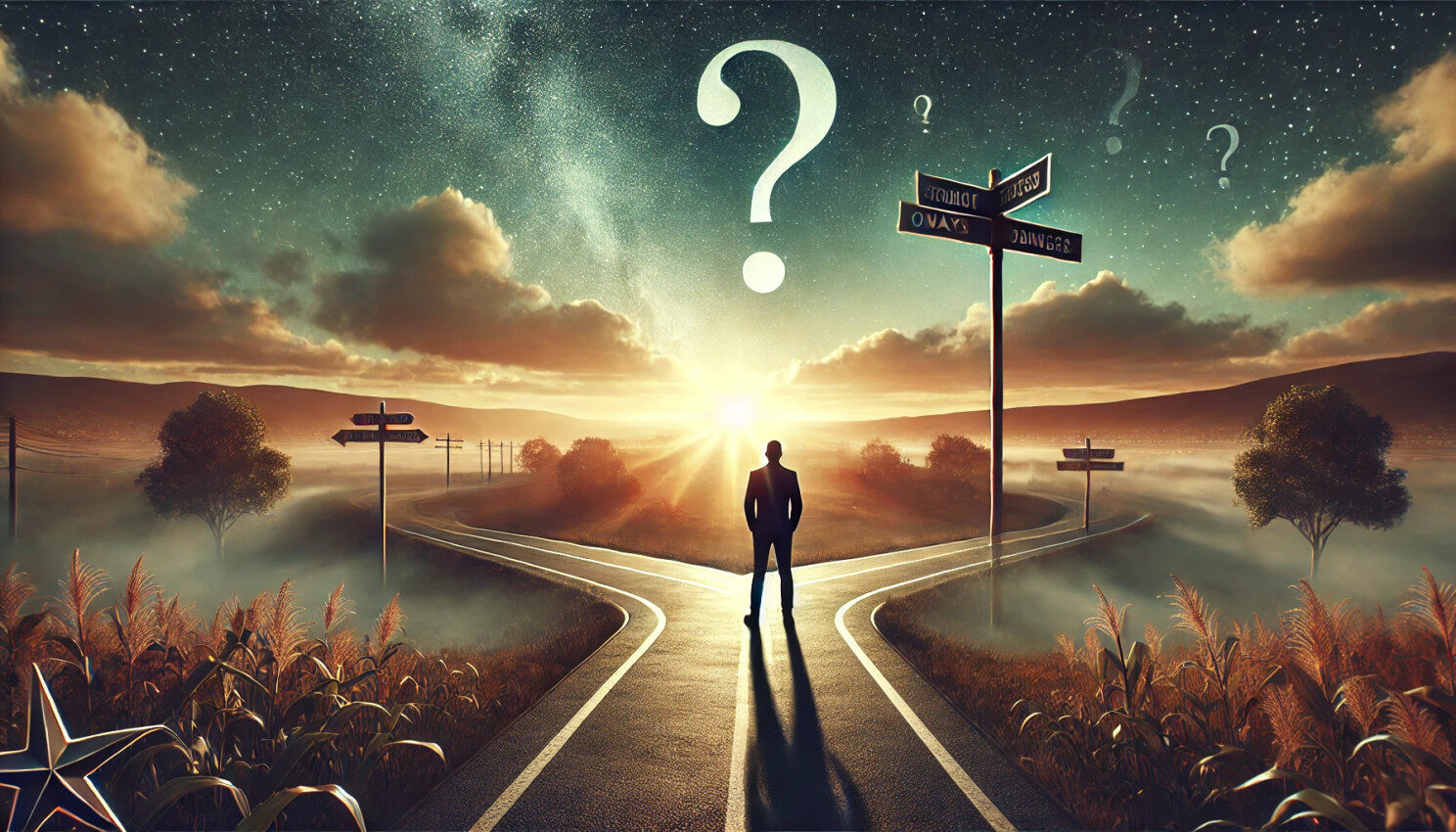
The mindset shift was more than just a personal evolution. It was a complete transformation of how I viewed mental health; not just in myself, but in others. I started recognising things in my own past that I had brushed aside or ignored; moments of stress, anxiety, and self-doubt that I had chalked up to “just life.” Becoming Mark V2.0 meant seeing those moments for what they really were: mental health challenges that I had not acknowledged because I did not know how.
This shift did not just stop with me. It extended to the way I saw others and the way I understood mental health in workplaces, families, and communities. I realised how much we miss because we do not know what to look for. So often, people are struggling quietly, and their challenges go unnoticed because they do not fit into the boxes we have been taught to recognise. I have come to see mental health as something deeply trenched, deeply personal, and far more common than we admit. The experience opened my eyes to how much work there is to be done; not just in raising awareness, but in truly understanding what mental health looks like in all its forms.
Mark V2.0 is still a work in progress. I am still learning, still adapting, still finding my way in this new version of myself, a new challenge everyday is a day not wasted (my opinion). But one thing is clear: this journey has given me a new purpose. It has driven me to become an advocate for mental health, not because it is easy, but because it is necessary. I know what it feels like to not have the words, to not know where to turn, to question whether things will ever feel normal again. I know how powerful it is to have someone there who listens, supports, and believes in you; even when you can not yet believe in yourself.
This mindset shift has not just changed how I see the world; it has changed how I live in it. I approach each day with the understanding that every challenge is an opportunity, every setback is a chance to grow, and every moment is an choice to make a difference. Mark V2.0 is not just a nickname; it is a reminder of how far I have come and how much more there is to do.
Before November 2022, I thought I had a solid understanding of mental health. I believed I recognised its importance, its complexities, and the challenges people faced. The truth is, I did not, not really. My journey over the past two + years has been like having a curtain pulled back, exposing a reality that had been there all along, but one I had never truly seen.
The brain abscess was not just a medical event; it was a wake-up call. As I began to rebuild myself, I started noticing things I had overlooked in my own life. I looked back at moments when I had felt overwhelmed, stressed, or disconnected, brushing them aside as “just part of life.” I realised those moments were more than that, they were signs of mental health struggles that I had not recognised. They did not look like the stereotypical images we associate with mental illness, so I dismissed them. I know now that I was not alone in doing that.

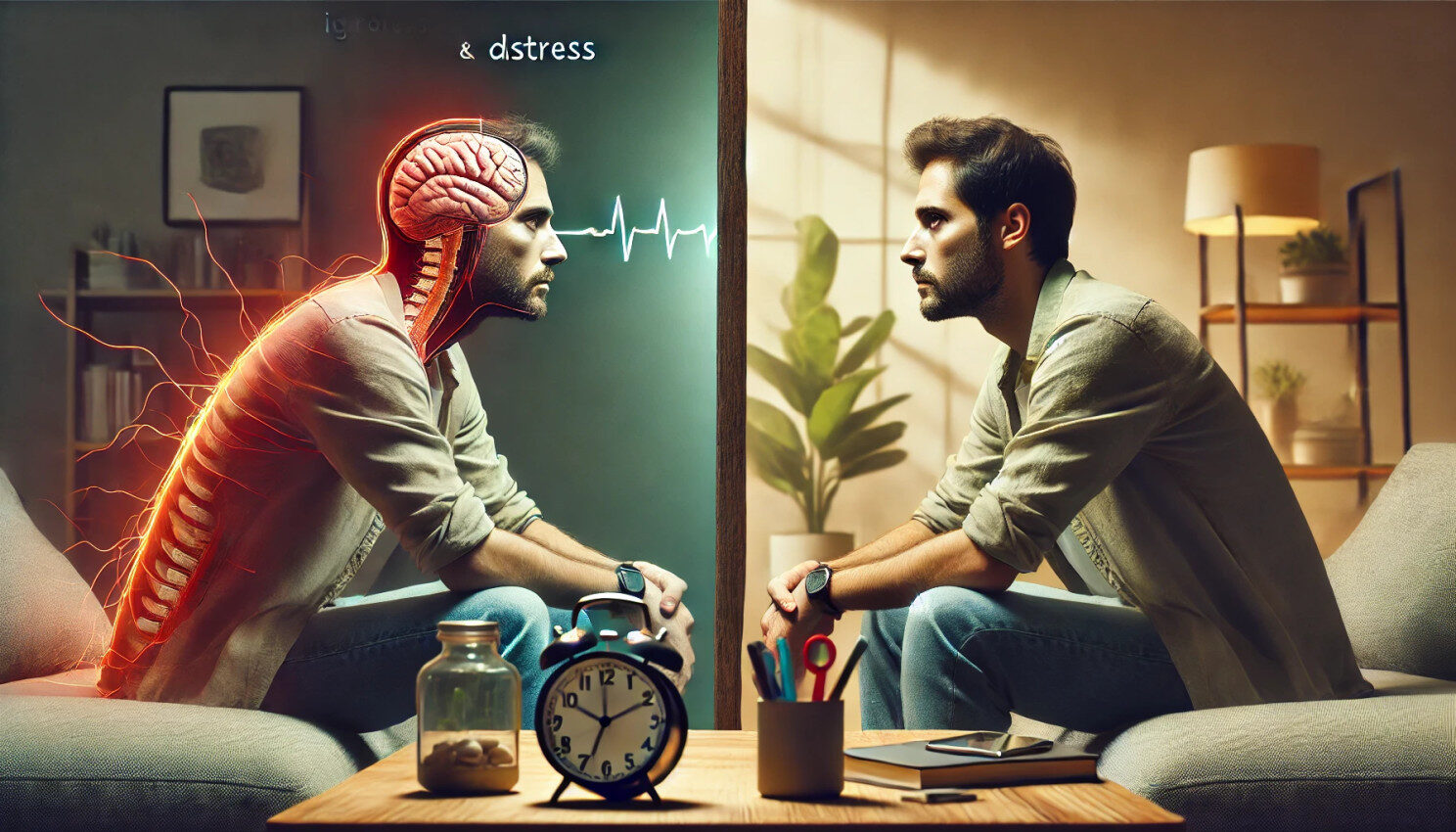
One of the most startling things I have learned is how much society conditions us to ignore mental health until it becomes undeniable. We are taught to push through stress, to minimise emotional pain, to wear resilience as if it is armour that never cracks. We do not talk about mental health until it reaches a breaking point. In that silence, so much is lost; understanding, connection, and the chance to offer or ask for support before it is too late.
This journey has forced me to rethink so many assumptions. I used to believe mental health challenges were rare or obvious, that they always come with clear signs like sadness or withdrawal. I have learned that mental health struggles can be quiet, hidden in plain sight. They do not always announce themselves. Sometimes they look like irritability or perfectionism, like exhaustion or apathy, like someone saying, “I’m fine,” when they’re anything but.
I also began to notice how these blind spots play out in workplaces. For years, I have seen companies roll out mental health initiatives, but so many of them focus on surface-level solutions; workshops, posters, “awareness days.” The intentions are good, but the depth is not there. Real mental health support is not about ticking boxes; it is about creating environments where people feel safe to say, “I’m struggling.” It is about recognising that mental health is not a side issue; it is woven into every part of our lives, from how we work to how we connect with others every day.
The things I never saw before have changed how I approach not just my own mental health, but how I interact with others. I have learned to listen differently; not just to what people say, but to what they do not say. I have learned that support is not about having the perfect words or solutions; it is about being present, about asking open-ended questions, about showing that you care without judgement.

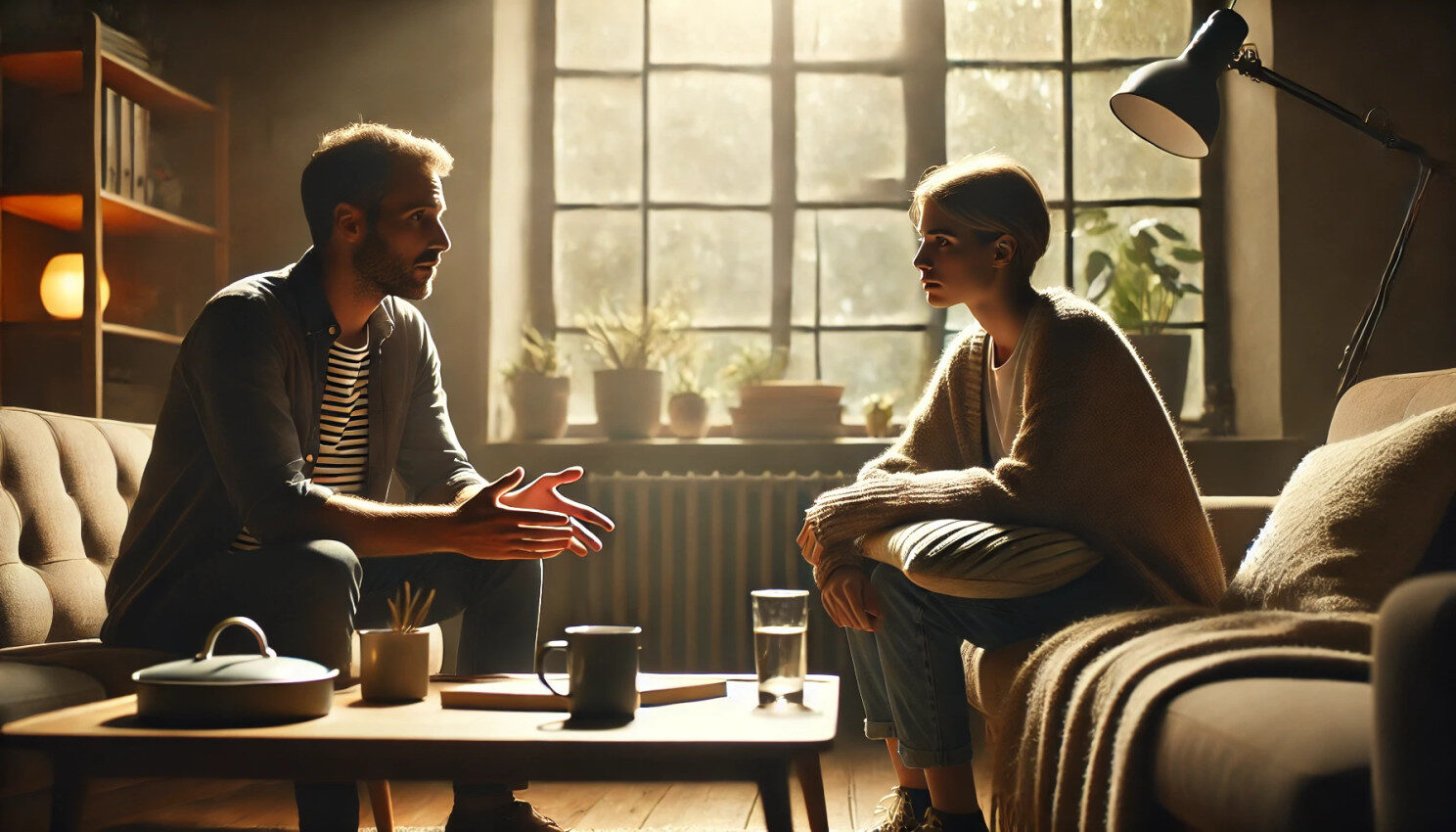
Most importantly, I have learned that mental health is a continuum; it is not about being “fine” or “not fine.” It is about recognising the small shifts, the gradual changes that can either lead us to a better place or pull us further into struggle. And it is about understanding that we do not have to wait until things reach a crisis point to seek help or offer it.
This realisation has driven me to become an advocate and a Mental Health First Aider, not because I have all the answers, but because I know what it feels like to not have them. I know how isolating it can be to face challenges you do not fully understand, and I know how life-changing it is to have someone step in, to listen, to remind you that you are not alone.
Mental health is everywhere. It is in the quiet moments of doubt, in the unspoken struggles, in the stories we do not yet know how to tell, and now, more than ever, I see it. I see how much we all have to learn, and how much we all have to give.
When we think about mental health, we often imagine the extremes; depression so severe it is immobilising, anxiety so intense it is paralysing, or breakdowns that force people to stop everything. These images are important, but they do not tell the whole story. In fact, they miss something crucial:
The quiet, unseen battles so many people face every single day.
These battles do not always come with dramatic signs, but they are just as real, just as impactful, and often far more misunderstood.
One of the biggest misconceptions I have come to realise is that we tend to look for mental health struggles in ways that fit a specific narrative. We expect to see sadness, withdrawal, or outward signs of distress. What we miss are the people who are struggling quietly; the ones who hide behind smiles, humour, or relentless productivity. We overlook the person who is always “fine,” because we assume their calm exterior reflects their inner world, but more often than not, that is where the unseen battles are raging.
These battles are not just personal; they are systemic. As individuals, workplaces, and societies, we have conditioned ourselves to value resilience in a way that ignores vulnerability. We reward those who “push through,” who stay late, who never say no. In doing so, we create an environment where people feel they can not admit when they are struggling. We have equated strength with silence, and in the process, we have created a culture where asking for help feels like failure.

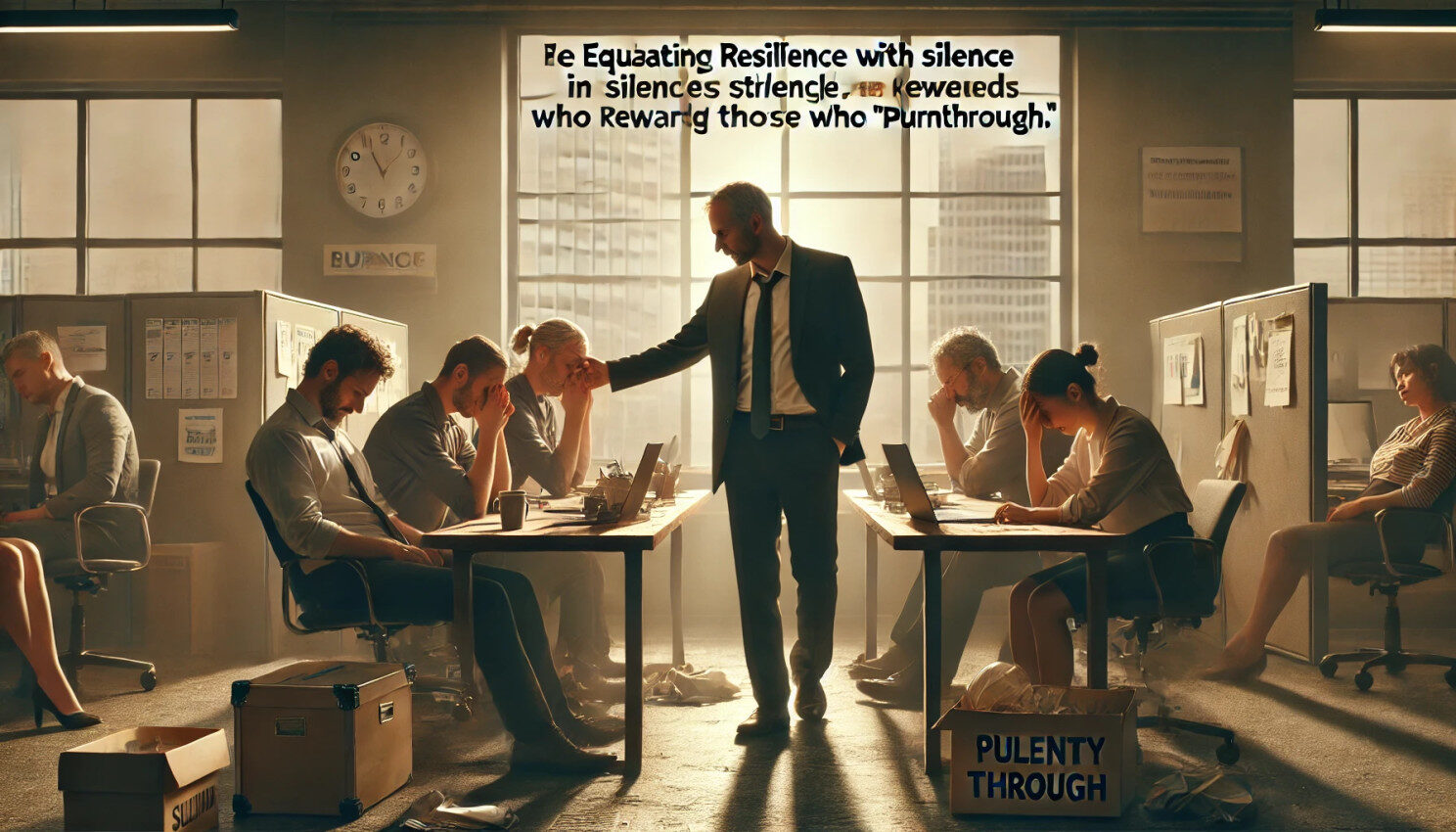
For years, I was guilty of these assumptions too. I believed that if someone was not showing obvious signs of struggle, they were fine. I believed that strength meant getting through things on your own, but my journey over the past few years has shattered those beliefs. I have learned that mental health is not always visible, that strength comes from connection, and that the bravest thing anyone can do is say, “I need help.”
One of the most painful truths I have realised is that we often get mental health wrong in the workplace. Managers assume they will notice if someone is struggling, but the reality is that colleagues are far more likely to see the early signs. People share their vulnerabilities with those they trust, and that trust is often peer-to-peer, not top-down. Yet so many workplaces rely on HR or leadership to “fix” mental health issues, when what is really needed is a culture of shared responsibility; a culture where everyone, from the CEO to the newest employee, sees mental health as part of their role.
Another thing we get wrong is assuming that mental health only matters when it becomes a crisis. We wait for the breaking point before we take action. Mental health is not binary, it is not a case of being fine or not fine. It is a spectrum, a continuum, and it shifts constantly. The small struggles we dismiss as “normal” often grow into bigger problems when left unchecked. The colleague who seems “a little off” today might be facing the start of a downward spiral tomorrow. Yet, we let these moments pass, convincing ourselves that someone else will notice, someone else will help.


What I have learned is that mental health is everyone’s business. It is not something we can delegate to a department or a designated day of the year. It is something we need to talk about, think about, and act on every single day. And it starts with understanding that the unseen battles are just as real as the visible ones. It starts with recognising that the strongest person in the room might also be the one struggling the most.
As a society, we need to stop getting mental health wrong. We need to move past the stereotypes, the assumptions, and the surface-level solutions. We need to listen more, judge less, and create spaces where people feel safe to share their battles; whether those battles are quiet, loud, or somewhere in between.
The truth is simple, mental health is not something that happens to “other people.” It is something we all experience, in ways big and small and the more we understand that, the more we can support each other; not just when things fall apart, but every single day.
When I look back over the past two + years, it is impossible to ignore how much my perspective has changed. This series is not just a collection of blog posts; it is a testament to everything I have learned, everything I have faced, and everything I now stand for. It is the culmination of a journey that began with a headache, but evolved into something much larger; a mission to change how we see, understand, and support mental health.
For much of my life, I thought I understood mental health. I thought I knew what resilience meant, what support looked like, and how people managed their challenges. Personally going through this experience showed me just how much I did not know. It opened my eyes to the gaps in our understanding, not just as individuals, but as a society. It made me realise that if I could miss those signs, so could anyone else.
My mission moving forward is simple, but it is not easy. I want to be part of something that changes the way we approach mental health; not just in workplaces, but in families, communities, and everyday conversations. I want to challenge the stigma, break down the stereotypes, and create spaces where people feel safe to share their struggles without fear of judgement. I want to show that mental health is not a weakness; it is a vital part of who we are.
This has been my way of starting that conversation. It has been a chance to share what I have learned, to reflect on the mistakes I have made, and to offer a perspective that I hope will resonate with others. But it is also just the beginning. My journey as a Mental Health First Aider, as an advocate, and as someone who has lived through their own challenges is far from over.

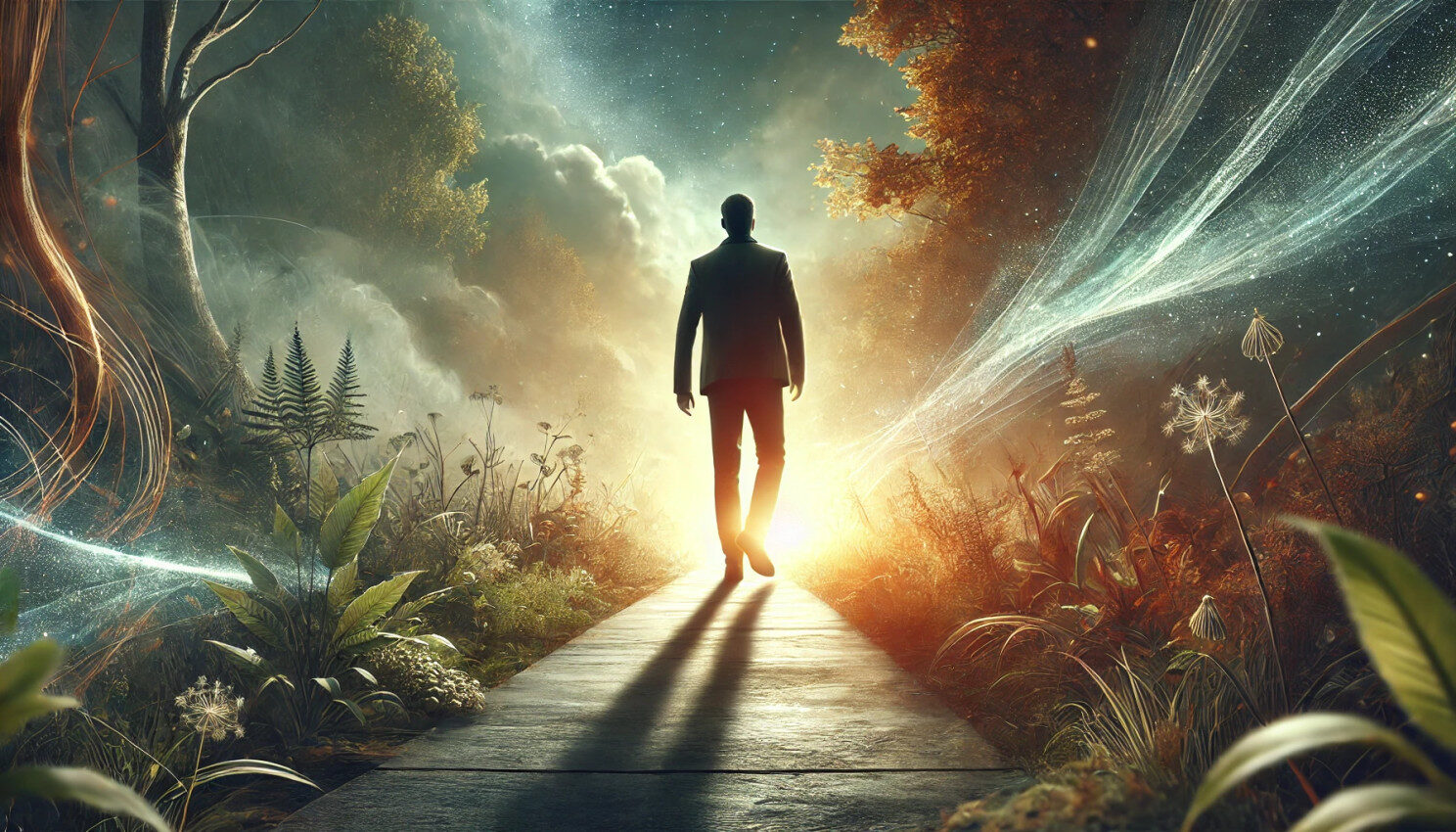
One of the most important lessons I have learned is that we can not do this alone. Mental health is not something we can solve as individuals; it is something we have to address together. Whether it is a colleague who notices the first signs of struggle:
A friend who listens without judgement, or
A workplace that prioritises well-being over profit.
Every small action makes a difference. Those actions add up to create real, lasting change.
Why does this series matter? Because it is a reminder that every conversation, every moment of support, and every act of kindness has the power to save a life.
I know this because it saved mine.
Without the support of my loved ones, I would not be here today, and that knowledge drives everything I do now.
Moving forward, my mission is to keep this conversation alive. To push for better awareness, better understanding, and better support for everyone, no matter where they are on their mental health journey. To challenge the idea that mental health support is a “nice to have” and show that it is a “must-have.” To remind everyone that no matter how dark things may seem, there is always hope, always help, and always a way forward. Mental health is not just an abstract idea, it is personal. It is real, and it affects all of us. By sharing my story, I hope to inspire others to share theirs, to listen more deeply, and to take action.
Together, we can create a world where mental health is not just understood but truly valued.
As I reflect on everything this journey has taught me, one thought remains constant:
Every day is a new day. No matter what challenges we face, no matter how dark or overwhelming life may feel, each sunrise brings the chance to start again.
That understanding has become a cornerstone of my life, a reminder to embrace the possibilities that each day offers.
This series has been deeply personal, but it is also been about connection; about reaching out to others who might be navigating their own challenges and showing that they are not alone. It is a testament to the power of resilience, the importance of support, and the difference we can make in each other’s lives. If there is one thing I hope you take away from these posts, it is that change is possible. Growth is possible, and even in the hardest moments, there is hope.

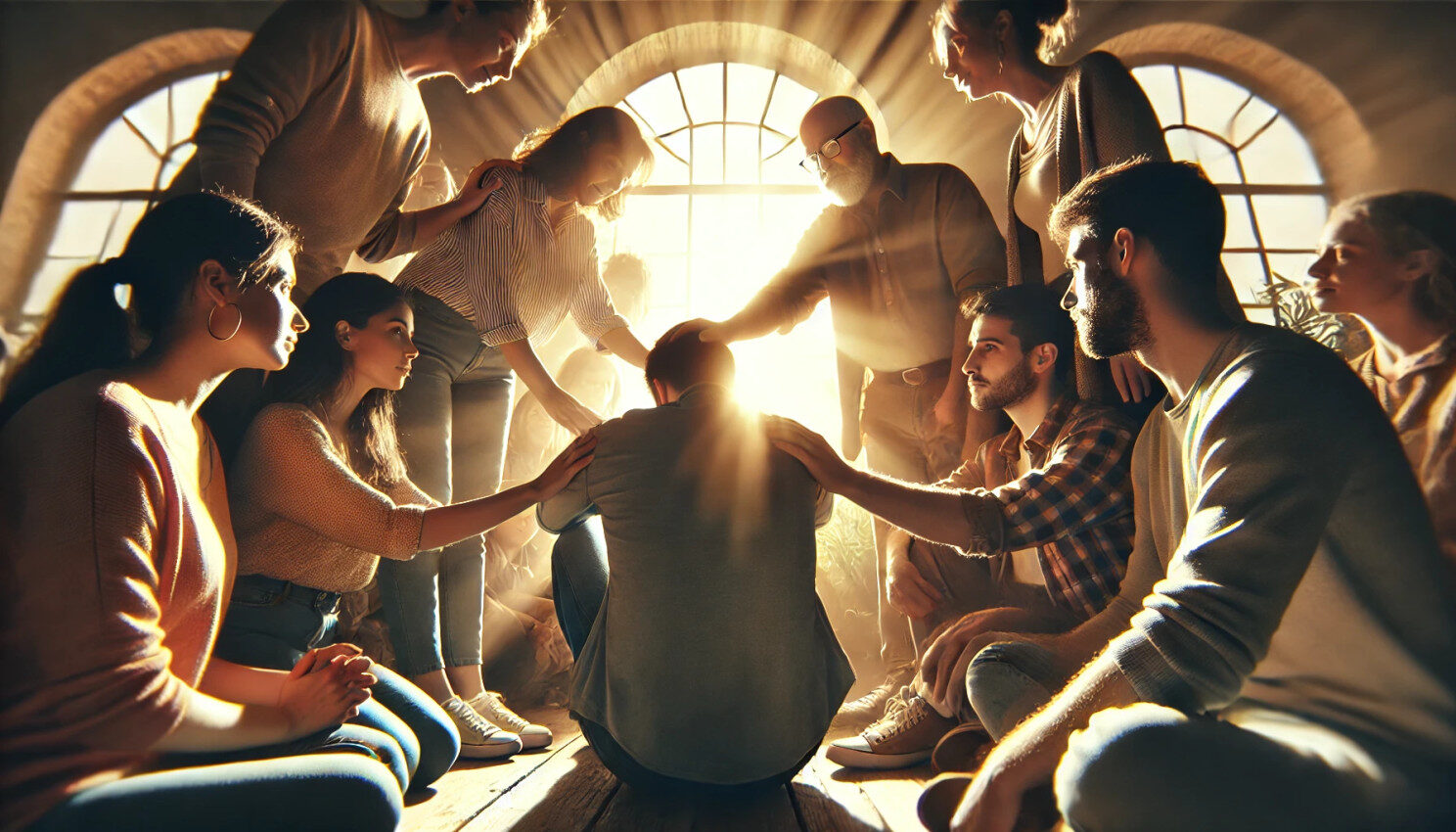
This is not the end of the journey; it is the beginning. Over the following months, I will continue to share posts about mental health, diving deeper into the conversations we need to have as individuals, colleagues, and communities. At the same time, I will be exploring the technology side of my role as a Modern Workplace Architect, blending my passion for IT with my commitment to building better mental health in the workplace. The two are not separate; they are intertwined, each informing the other in ways that drive meaningful change.
Every day is a new opportunity to learn, to grow, and to make a difference. This series has been my way of embracing that truth, and I hope it inspires you to do the same.
Before I close, I want to take a moment to express my heartfelt thanks to everyone who has supported me on this journey:
This series is not an ending; it is a foundation. It marks the beginning of a larger journey, one that will continue to grow and evolve. In the following months, I will be sharing new posts, both on the technical aspects of my work and on the ongoing conversations around mental health. These topics are deeply intertwined, and I am committed to exploring them both with the depth and thoughtfulness they deserve.
To everyone who has joined me on this journey, thank you. Thank you for reading, for reflecting, and for being part of this conversation. Together, we can continue to challenge stigma, support one another, and build a world where mental health is understood, valued, and prioritised.
Every day is a new day. Let’s make the most of it; together.
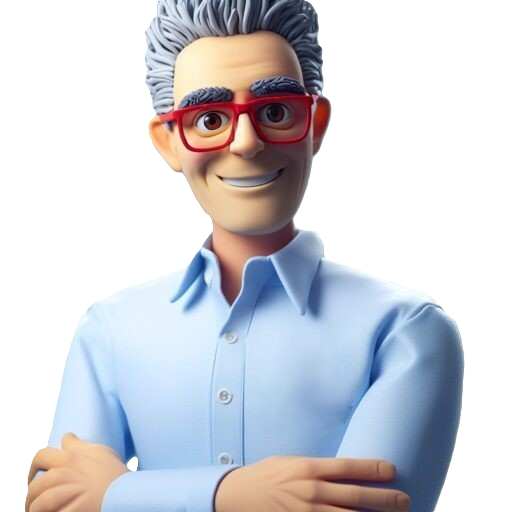
Microsoft Solution Architect, Senior Project Manager, and Mental Health Advocate